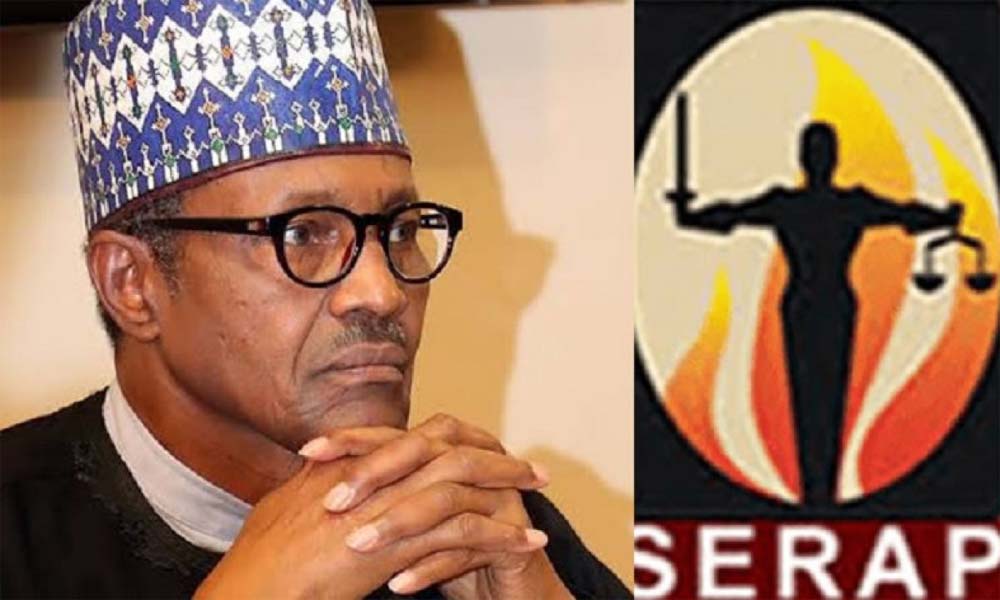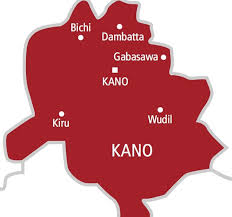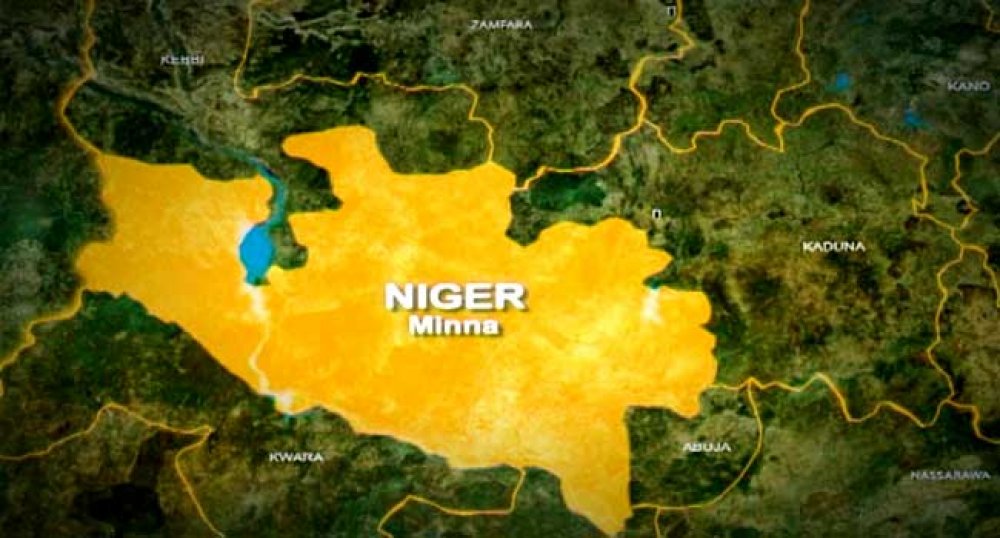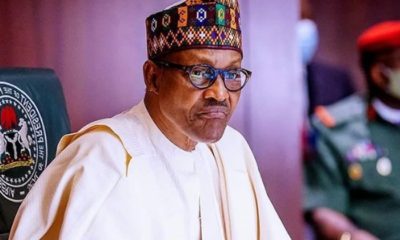NEWS
133m poor Nigerians: SERAP asks Buhari to probe spending on ‘social intervention programmes’

Socio-Economic Rights and Accountability Project (SERAP) has urged President Muhammadu Buhari to “promptly set up a presidential panel of enquiry to thoroughly, impartially, effectively and transparently investigate spending on all social safety nets and poverty alleviation programmes and projects executed between 2015 and 2022.”
SERAP also urged him “to ensure the findings of any such investigation are widely published, and suspected perpetrators of corruption and mismanagement of public funds meant to take care of the poor should face prosecution as appropriate, if there is sufficient evidence, and any stolen public funds should be recovered.”
A recent report by the National Bureau of Statistics (NBS) shows damning revelations that some 133 million Nigerians are poor, despite the government reportedly spending N500 billion yearly on ‘social investment programmes.’ Half of all poor people in the country are children.
In the letter dated 19 November 2022 and signed by SERAP deputy director Kolawole Oluwadare, the organisation said: “The report suggests a grave violation of the public trust, and the lack of political will to genuinely address poverty, and uphold your government’s constitutional and international human rights obligations.”
SERAP said, “The report that 133 million Nigerians are poor suggests corruption and mismanagement in the spending of trillions of naira on social safety nets and poverty alleviation programmes, including the reported disbursement of over $700 million from the repatriated Abacha looted funds to these programmes.”
SERAP also said, “Your government has legal obligations to effectively and progressively address and combat extreme poverty as a matter of human rights.”
SERAP said, “The failure to address extreme poverty has resulted in high levels of inequality, and serious violations of economic and social rights of Nigerians, particularly the socially and economically vulnerable sector of the population.”
The letter, copied to Mr Olivier DE SCHUTTER, UN Special Rapporteur on extreme poverty and human rights, read in part: “These grim revelations by the NBS show the failure to fulfil your oft-repeated promise to lift 100 million Nigerians out of poverty, and that no one will be left behind.”
“We would be grateful if the recommended measures are taken within seven days of the receipt and/or publication of this letter. If we have not heard from you by then, SERAP shall take all appropriate legal actions to compel your government to comply with our request in the public interest.”
“The report also shows that the purported social safety nets and poverty alleviation programmes are clearly not working. It also shows a failure by your government to uphold the constitutionally and internationally guaranteed human rights of the Nigerian people.”
“SERAP also urges you to prioritise investment in quality education and healthcare, and to redirect some of the unnecessary spendings in the 2023 budget such as spending by the presidency on feeding and travels, and money allocated to the National Assembly in the budget to address poverty as a human rights issue.”
“A supplementary appropriation bill, which reflects the proposed redirected budget should be urgently sent to the National Assembly for its approval.”
“Your government has a sacred duty to ensure transparency and accountability in the spending of the country’s resources, including the spending of public funds on social safety nets and poverty alleviation programmes and projects.”
“Section 14(2)(b) of the Nigerian Constitution of 1999 [as amended] provides that, ‘the security and welfare of the people shall be the primary purpose of government.’”
“Under Section 16(1)(a)(b), your government has the obligations to ‘harness the resources of the nation and promote national prosperity and an efficient, a dynamic and self-reliant economy, and to “secure the maximum welfare, freedom and happiness of every citizen.”
“Nigeria has also ratified the African Charter on Human and Peoples’ Rights and the International Covenant on Economic, Social and Cultural Rights, which recognize legally enforceable economic and social rights, such as the rights to education, health, safe food and clean water, security, and shelter.”
“Allegations of corruption in social safety nets and poverty alleviation programmes pose both direct and indirect threats to human rights, and contribute to extreme poverty in the country.”
“Nigerians have the right to be free from poverty. Extreme poverty is the greatest denial of the exercise of human rights, as it denies millions of Nigerians not only their economic and social rights but also civil and political rights such as the rights to life, human dignity, and political participation.”
“Political freedom and participation are closely related to human development. Without economic and social rights, people cannot effectively enjoy their political freedom. Therefore, effectively and progressively addressing poverty would improve the ability of Nigerians to exercise their political freedom and to have choices in life.”
“Successive governments have systematically neglected social and economic rights, and failed to address severe poverty and inequality in the country.”
“Part of the problem is the failure by your government to promote the legal recognition of economic and social rights in the Nigerian Constitution, which would allow people living in poverty to seek redress for violations of their human rights.”
“The allegations corruption and mismanagement in the spending of public funds on social safety-nets and poverty alleviation programmes and projects would clearly amount to a fundamental breach of national anticorruption laws and the country’s international anticorruption obligations.”
“Investigating and prosecuting the allegations, and recovering any stolen public funds would serve the public interest.”
“SERAP notes that the consequences of corruption are felt by citizens on a daily basis. Corruption exposes them to additional costs to pay for health, education and administrative services.”
“Corruption undermines the economic development of the country, trapping the majority of Nigerians in poverty and depriving them of employment opportunities.”
“The 2022 Multidimensional Poverty Index (MPI) Survey reveals that 65% of the poor (86 million people) live in the North, while 35% (nearly 47 million) live in the South. Poverty levels across States vary significantly, with the incidence of multidimensional poverty ranging from a low of 27% in Ondo to a high of 91% in Sokoto.”
“The NBS also shows that over half of the population of Nigeria are multidimensionally poor and cook with dung, wood or charcoal, rather than clean energy. High deprivations are also appeared nationally in sanitation, time to healthcare, food insecurity, and housing. Half of all poor people are children.”
NEWS
Kano Businessman’s Daughter Kidnapped After ₦8m Ransom Payment

In a shocking incident on Sunday morning, unknown gunmen suspected to be kidnappers invaded the home of Alhaji Auwal, a prominent businessman, in Garo Town, Kabo Local Government Area of Kano State.
The gunmen, estimated to be around 10 in number, forced their way into the residence, breaking down a door to gain entry.
An anonymous source revealed that the attackers were heavily armed, with three carrying firearms and the rest wielding other weapons.
READ MORE: Tinubu Urges Stakeholders To Join Forces To Restart Oil Production In Ogoniland
They quickly gathered the entire family in one room, instilling fear and panic in the household.
According to the source, Alhaji Auwal pleaded with the assailants to spare his family and agreed to meet their demands.
The kidnappers, who were determined to extort money, received ₦8 million from the family.
Despite this payment, the gunmen took the businessman’s eldest daughter, Zainab, a secondary school graduate, before fleeing the scene.
The whereabouts of Zainab remain unknown, and as of now, the kidnappers have not contacted the family.
This abduction comes just 48 hours after the tragic kidnapping and subsequent murder of former Gombe State Permanent Secretary, Atiku Mu’azu, who was killed by gunmen after a ₦10 million ransom was paid.
The two incidents have left the residents of Kano in shock and fear, prompting calls for increased security measures in the area.
Attempts to reach the spokesperson for the Kano Police Command, SP Abdullahi Haruna, for comment were unsuccessful as his phone remained unreachable.
Authorities have yet to make any official statements regarding the investigation.
International News
Colombia Blocks US Deportation Flights Over Migrant Treatment

In a bold move, Colombian President Gustavo Petro declared on Sunday that he would not allow US deportation flights carrying Colombian migrants to access his country’s airspace.
The left-wing leader took to X (formerly Twitter) to express his strong stance, stating, “The United States cannot treat Colombian migrants as criminals. I forbid entry to our territory to US planes carrying Colombian migrants.”
Petro made it clear that such flights would only be accepted once Washington established a protocol to ensure the “dignified treatment” of deported migrants.
READ MORE: How Trump Plans To Grow American Economy By $1 Trillion Daily
The president later confirmed in a separate post that he had already turned back US military planes that were en route with Colombian migrants on board, although he did not provide further specifics on the matter.
While AFP sought confirmation from US authorities regarding the blockade of deportation flights, no immediate response was forthcoming.
Petro’s statements come just a day after Brazil’s government voiced similar outrage over the treatment of deported Brazilians.
Brazil condemned the US administration under President Donald Trump, citing instances where Brazilian migrants were deported while handcuffed on flights, describing it as a “flagrant disregard” for their basic rights.
In his remarks, Petro emphasized that he would be open to allowing civilian US flights to transport deported migrants as long as they were not subjected to treatment “like criminals,” signaling a broader call for humane treatment of migrants under international deportation policies.
NEWS
Four Dead, Many Injured As Explosion Rocks Niger State Mining Site

An explosion at a mining site in Sabon Pegi, Mashegun Local Government Area of Niger State, claimed the lives of four individuals and left several others injured on Sunday morning.
The blast occurred as miners resumed operations, sending shockwaves through the community.
While the exact cause of the explosion remains undetermined, local residents have pointed to the poor handling of explosive devices by mining companies as a possible factor.
READ MORE: Thisday Awards: Diana Ross Arrives In Nigeria
The incident has sparked concerns about safety practices within the mining sector.
Community sources confirmed the recovery of four bodies, but authorities fear the death toll could rise.
Investigations are ongoing to establish the cause of the blast and assess the full extent of the damage.
One resident, Aminu, described the chaos that followed the explosion. “The sound was so loud that many of us thought it came from the hydroelectricity dam nearby. People panicked and ran into the bush for safety,” he recounted.
Another community member highlighted the potential role of mining operations in the tragedy.
“Mining companies here frequently use explosives during their activities, and this seems like an operational issue, not something related to terrorism,” the resident said, dismissing concerns about a security threat in the area.
As of the time of reporting, neither the state government nor security agencies have released an official statement regarding the explosion.















